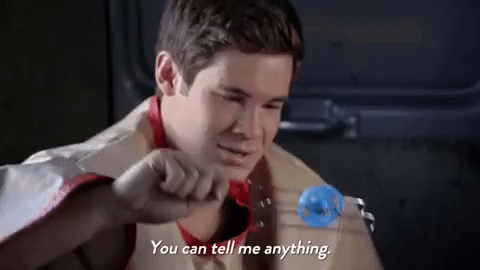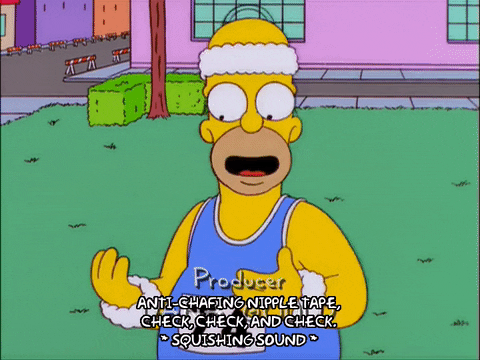
There are a few things that we should always try to avoid talking about: sex dreams about people you know with people you know; a teacher’s life outside of school; the fact that everyone picks their nose – the list is extensive.
There are also a few things that we don’t talk about that we really should. I can tell ya right now that our mental health is never a topic that should be off-limits.
Now look, I don’t want to place the blame on anyone but all I’m saying is that older generations thought that discussing your mental health was a sign of weakness and that everything could be fixed with a cuppa tea and a Tim Tam. I love me a Tim Tam as much as the next guy, but it’s time we started having actual conversations about what we’re going through. Screw outdated stigma, self-care is priority numero uno.
So let’s do it.
Lemme just clarify that there is a difference between having depression and/or anxiety and feeling depressed and/or anxious. Almost everyone has briefly felt depressed or anxious at some point in their life because something shitty has happened but if it’s not depression or anxiety, that feeling usually fades.
Depression and anxiety are a tad different – they’re both mental health issues that aren’t going to be solved overnight. Nah, even if you run a marathon a day and eat nothing but healthy food (which honestly sounds hella dull but to each their own), that doesn’t mean your depression is going away.
But, living a healthy life can ease the symptoms of depression so perhaps don’t rule out those marathons – even if they do sound like the worst thing possible to do on a Sunday.
In all seriousness though, our bodies are kinda jerks. Apparently, depression and anxiety could be part of our evolutionary process to help us survive which just sounds like a real kick in the teeth courtesy of the universe.
And to really rub salt in the wounds, mental health issues trigger changes in the brain that makes us less likely to seek help. Let’s just agree that if the universe was a person, it’d be a bored rich guy ruining it for everyone else just for kicks.
But, this does explain why people with depression and anxiety might be more reluctant to reach out and get some help. The best news is that there are so many options for people with a mental health issue that don’t necessarily require too much energy.
First up, depression can occasionally be the symptom of another medical condition so just to clear the air, it’s always smart to get a check-up with ol’ mate aka your GP just to make sure everything’s all good.
It’s also good to know that there are people going through the same situation or people who can empathise with your situation, so if you feel up to it, try to reach out to someone you’re comfortable chatting with. Whether that’s a close friend or a family member or a mental health helpline (like Beyond Blue, QLife and Headspace), they’ll be like a soundboard for you to talk through what you’re experiencing.
Depression, anxiety and mental illnesses as a whole can be really sucky but because we’re no longer in that ‘cup of tea and Tim Tam’ era, they can be super manageable if you’re open to a li’l help.
This is a crap metaphor but it’s kinda like when you’re opening a jar but you can’t because the manufacturers are sickos who don’t want anyone to eat their product (that we paid for), so you chuck the jar to someone else and they help you with it. Naturally, you already loosened it but it was handy to have them around.
Crappy metaphor aside, what I’m getting at is this: take baby steps, talk to people who are experienced with mental health issues or who you can chat comfortably with, and go from there.
Rome wasn’t built in a day but I do know that it would’ve been built much quicker if they had the proper resources. (That’s a less clunky metaphor but still average at best.)
You got this.









